
The last condition of Mohsen Paknejad for the implementation of the Azadegan oil field contract is to deposit 800 million dollars to the account of Dasht Azadegan Arvand Company. A condition that banks have been unable to fulfill until today.

The CEO of the National Iranian Petroleum Products Refining and Distribution Company, emphasizing the move towards data-driven management and smart fuel chain, said: "The opportunity for technological and data-driven work in the refining and distribution industry is very broad. What is important in this path is the right direction, prioritizing issues, and defining effective cooperation models."
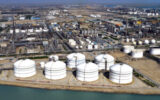
Persian Gulf Petrochemical Industries Holding, as the second largest petrochemical holding in the Middle East and the largest player in this industry in Iran, plays a key role in meeting domestic needs and the international standing of this industry, with more than one-third of the nominal capacity of the country's petrochemical industry.
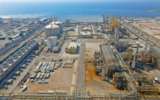
Located in the heart of the South Pars energy region, Hengem Petrochemical has not only become one of the largest producers of ammonia and urea in the country, but also, with the completion of its new phases, is ready to play a more important role in Iran's food security and foreign exchange earnings.

Bloomberg reported in a new report that nearly 978 tankers are operating in the so-called “dark fleet,” a network that supports oil exports from Iran, Venezuela and Russia and accounts for about 19 percent of the global fleet. The data comes as a large tanker was seized near Venezuela, which was previously under U.S. sanctions for its involvement in transporting Iranian oil.
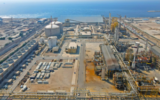
Kimia Pars Middle East Company, one of the important players in Iran's petrochemical industry, has achieved an influential position in recent years in the fields of foreign exchange earning, sustainable production, and development of global markets, relying on methanol production and 100% export of its products.

South Pars announced that it will meet the majority of its operational needs by relying on domestic capacity and cooperation with knowledge-based companies; a path that has brought the complex to the threshold of industrial independence by localizing more than 15,000 components and creating a smart supply chain.
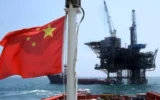
China's independent refiners have increased their intake of Iranian crude oil after Beijing issued a new round of import quotas late last month.

Mobin Energy Persian Gulf Company, as one of the largest centralized utility units in the world, with an area of over 88 hectares in Phase One of the South Pars Special Economic Zone in Assaluyeh, plays a key role in providing energy and infrastructure services for petrochemical complexes.
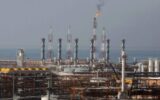
Tabriz Oil Refinery, one of the most important refining centers in Iran, plays a key role in supplying the liquid fuel needed by northwest Iran by providing about 7 percent of the country's crude oil refining capacity.










